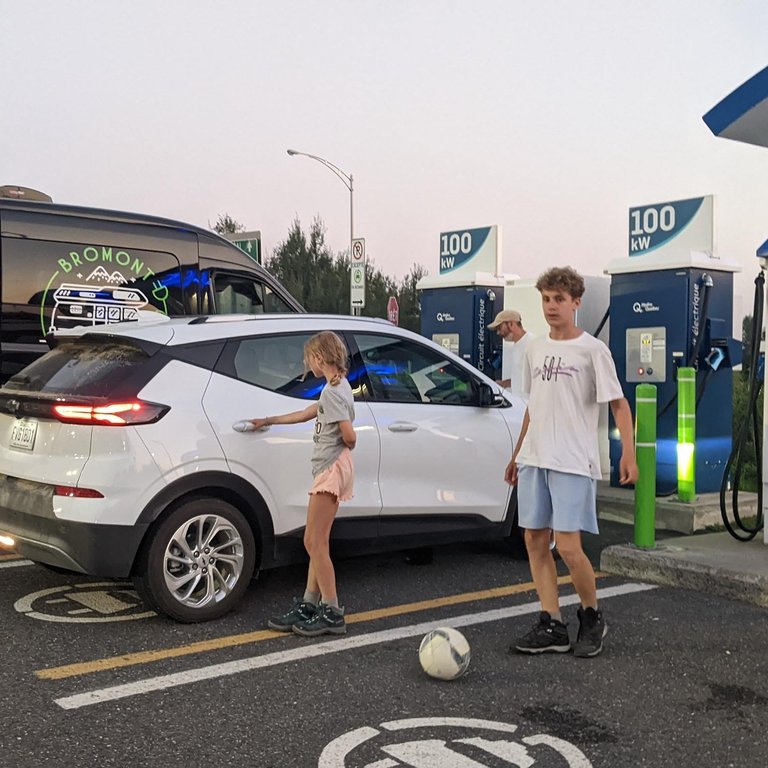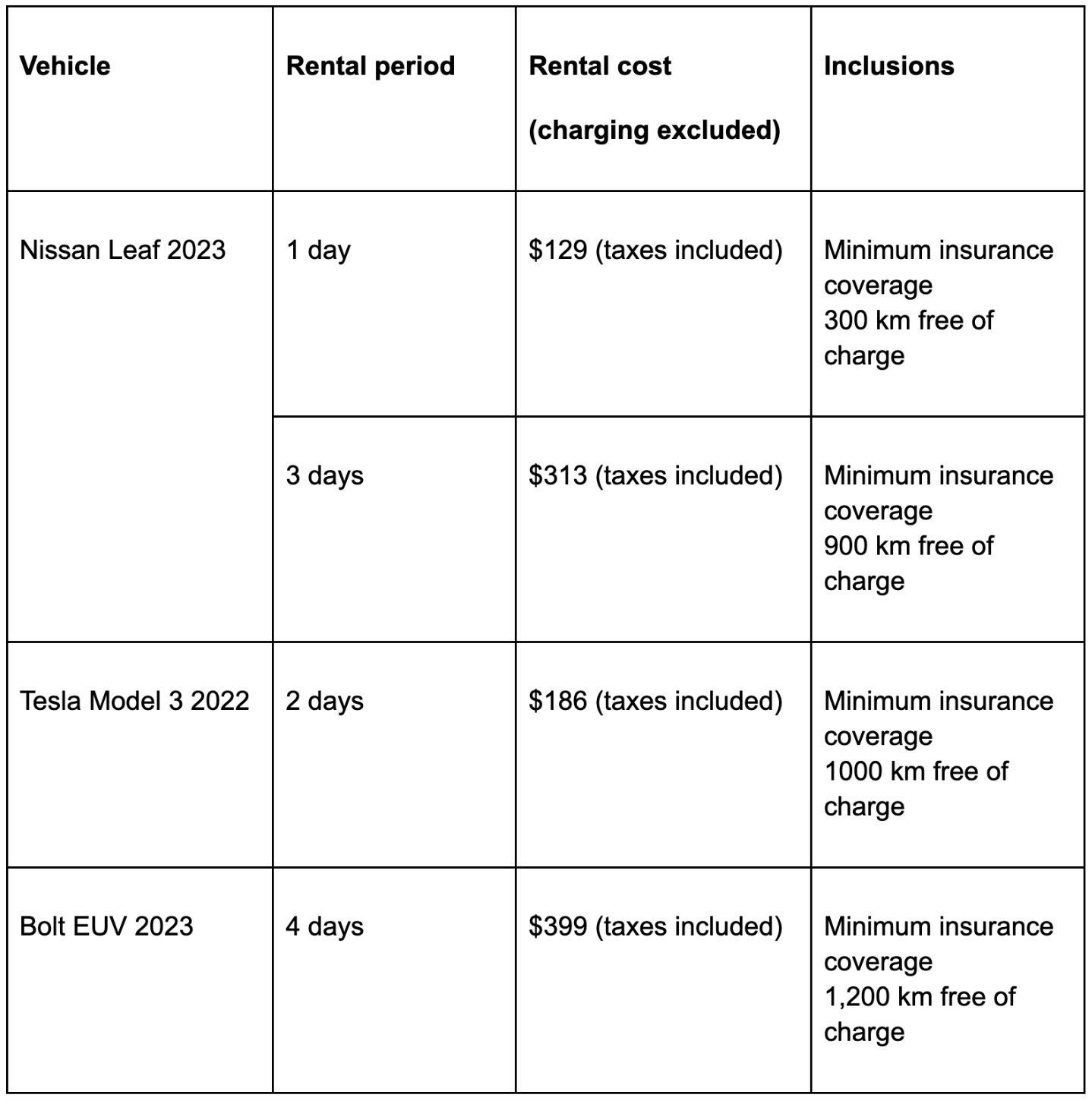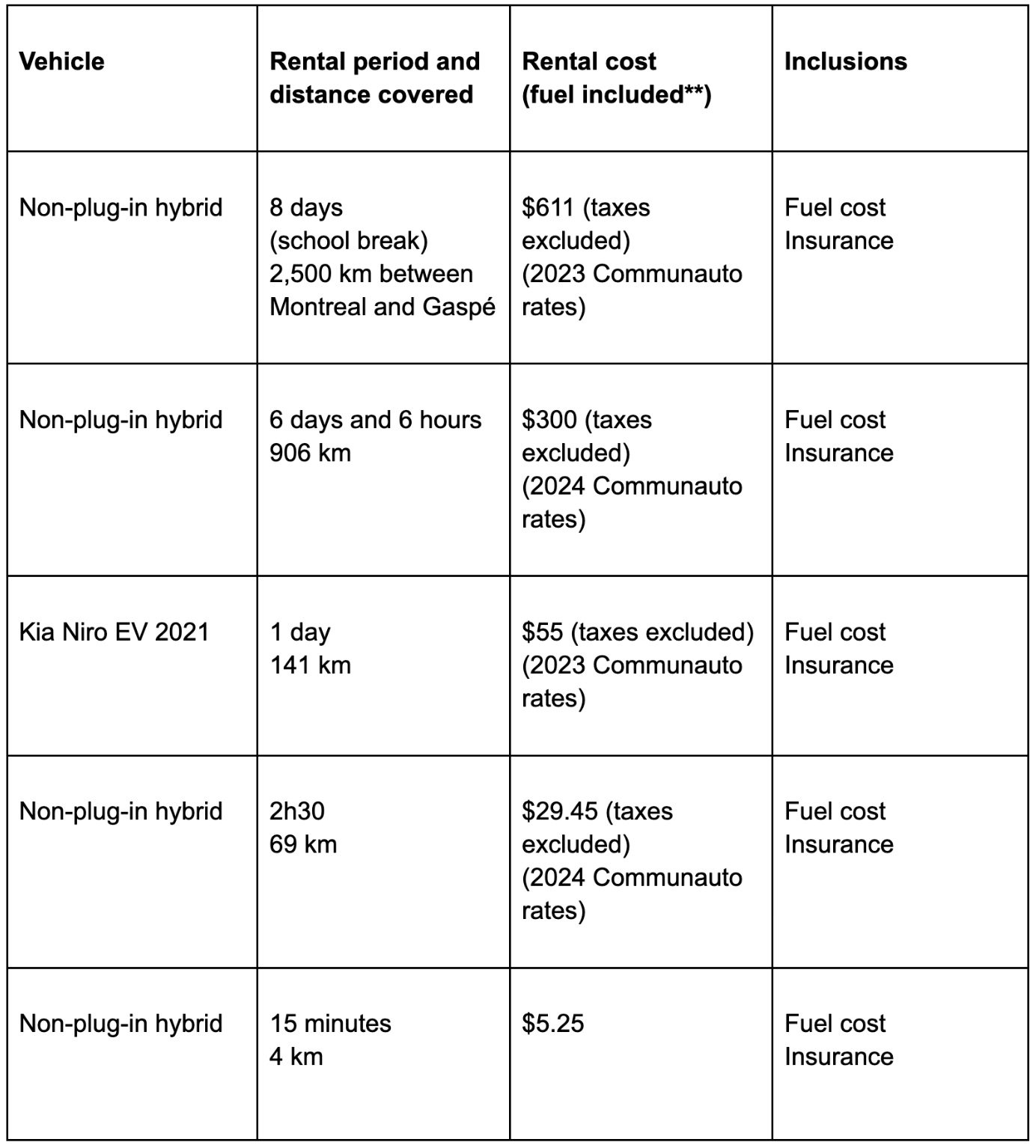
A new-found freedom: the story of a transition to a car-free life
29 May 2024
The first steps towards a car-free life
When my partner and I decided to replace our old family car with a non-plug-in hybrid a few years ago, we thought we were doing something important for the environment. What a disappointment when we later realized that this class of vehicle was not considered an electric vehicle! We did however significantly reduce our fuel consumption by switching from a family minivan to a small car, even with 3 kids. And that was already a step in the right direction.
The second opportunity for change came when my partner got a new job: leaving the South Shore and moving closer to our home, with the added benefit of being able to work from home several days a week. It didn't take long to do the math. Why keep a car that was parked 90% of the time, costing us money in maintenance, gas and registration, polluting the air and causing us stress on snow-clearing and street-cleaning days?
After some more or less rational procrastination (Ah, resistance to change!) ー "Are we still going to be able to go camping? What about our social status? People will think we're crazy!" ー the decision was made quickly. Curiously, it was the children who were the hardest to convince. For them, not owning a car was like losing at Monopoly! But we had good arguments: first, we'd organize a family party to celebrate the end of our car addiction! If we could make our challenge a reality, we'd deserve it. Then we'd replace our old bikes, go out to eat more often and rent a cottage on weekends with the savings we'd make by parting with our expensive car.
The benefits of not having a car and transportation options
When we finally made the move, we discovered advantages we'd never imagined. Our car, which was already a used vehicle, sold in a week! We celebrated as we had promised. Then, discovering carsharing was like playing a new game: who's going to be the first to spot the car we've reserved on the street? And wow, we don't pay for gas or parking!
But what the kids liked most was traveling in a different car every time we used a peer-to-peer carsharing service. As often as possible, we book an electric car. That way, we can travel with peace of mind in the silence of the cabin, without polluting, and we feel good. The cars we rent are well cared for and in good condition, so we don't have to worry about them. And let's not forget the savings! Between the sale of the car, parking sticker, insurance, registration, tire changes, maintenance, and unexpected repairs, we save hundreds of dollars a month ー even taking into account the cost of public transit and bike maintenance, which we now use more often. As for the mental burden, it's amazing: once we've handed in the keys, the car is no longer our problem! It's like a big, heavy piece of luggage that we didn't know we were carrying, and that we're finally putting down. It's so much more time to take care of yourself.
Today, we're wondering why we waited so long to make this change in our lives. We like to tell our story to those around us. Even though lots of people are already living car-free in major urban centers, we feel a bit like pioneers, and we're proud to have accompanied our children in this change. We've shown them that even if it may seem difficult to change at first, because you're afraid of losing your quality of life, you never know until you try. Sometimes, change is even better than you imagined. We're surprised by what we discover along the way. Frankly, it would have been wrong to deny ourselves this freedom.
Blandine Sebileau
Real-life examples of EV rental between private individuals (dedicated platform)

Real-life examples of vehicle reservations with Communauto*

* Costs with a Communauto Value subscription (subscription cost $40/year).
** Communauto rates are calculated according to the length of the rental and the kilometers driven, including the cost of gas.
